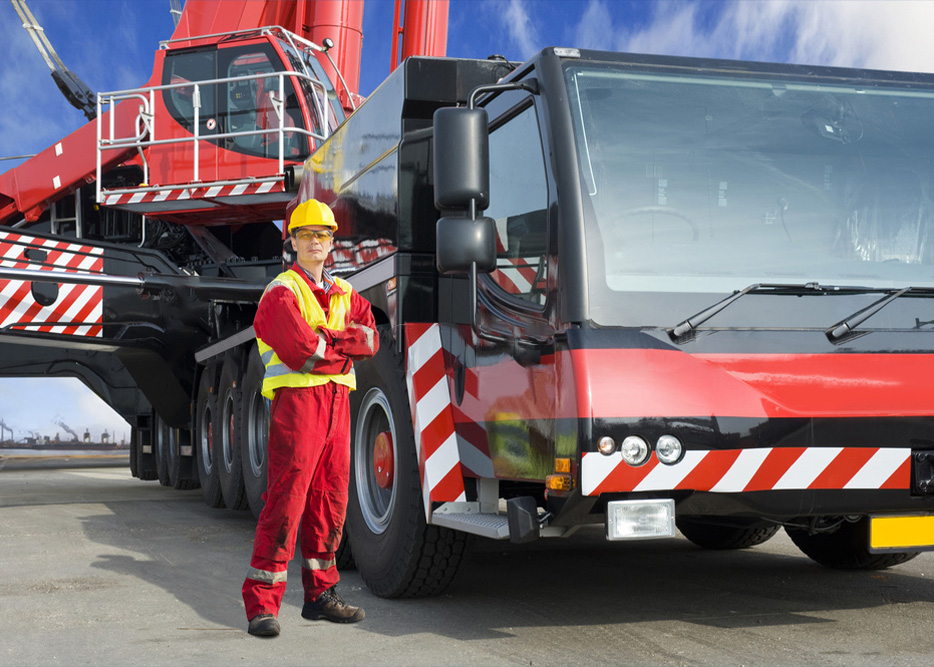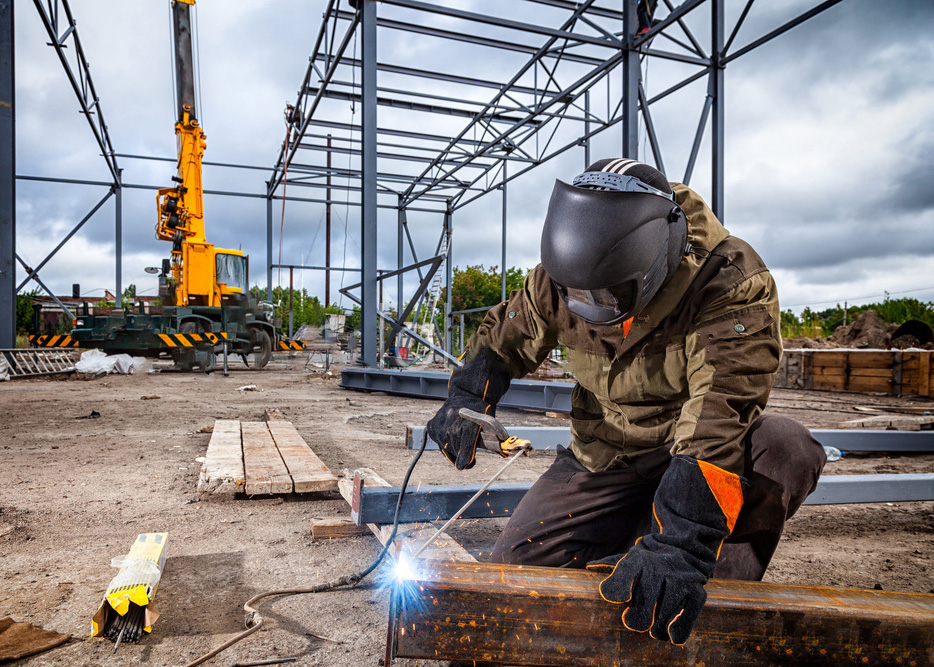
HVAC
From the hot deserts in the Southwest to the wintery, wooded Northeast, HVAC techs ensure comfort in every home, office and commerce center.Do you like building, traveling and being outdoors? Why not consider a career that is fun and offers financial freedom. Carpenters measure, cut and shape wood, plastic, fiberglass and drywall. Commercial and industrial carpenters construct, erect, install and repair structures and fixtures. These carpenters are involved in many different kinds of construction, from buildings to highways and bridges to power plants.
Education Options:
Technical School, Community College, Registered Apprenticeship Program, and Industry Training Program
Qualifications:
Carpenters need manual dexterity, good eye-hand coordination, physical fitness and a good sense of balance. The ability to solve mathematical problems quickly and accurately also is required. Carpenters can learn their craft while making good money through on-the-job training.

Do you wish your career involved using a joystick? No, we are not talking about becoming a professional video gamer. Mobile crane operators use state-of-the-art heavy machinery to move construction materials, earth and even petroleum products over short distances. A series of joysticks, levers and pedals allows the operator to use his or her knowledge of load calculations to place materials around a construction site.
Education Options:
Technical School, Community College, Registered Apprenticeship Program, and Industry Training Program
Qualifications:
Good sense of balance, ability to judge distance, eye-hand-foot coordination, comfortable with technology, basic math skills. Seventeen States have laws requiring crane operators to be licensed with a written and skills test.

If you’re into sound systems, robotics or tinkering with wires, you should think about a career as an electrician. Electricians install and maintain all of the electrical and power systems for our homes, businesses and factories. In large factories, electricians usually do maintenance work that is more complex. These kinds of electricians may repair motors, transformers, generators and electronic controllers on machine tools and industrial robots. They also advise management as to whether the continued operation of certain equipment could be hazardous.
Education Options:
Technical School, Community College, Registered Apprenticeship Program, and Industry Training Program
Qualifications:
Manual dexterity, hand-eye coordination, physical fitness, and a good sense of balance. Electricians also need good color vision in order to recognized electrical wires by color.

If you did not work while going to college, you will enter the workforce as a craft laborer or apprentice. In order to become a craft professional, you must have experience in your field. You will work with a craft professional and have the opportunity to put your college training to work on the job site. It is important for you to get this type of experience before you are the one making decisions on specific procedures and materials on site. A craft professional must perform at a high level of expertise under pressure. Experience, along with journey-level assessments, is the assurance employers need to move you into the position of craft professional.
Education Options:
Technical School, Community College, Registered Apprenticeship Program, and Industry Training Program
HVAC
From the hot deserts in the Southwest to the wintery, wooded Northeast, HVAC techs ensure comfort in every home, office and commerce center.
Do you have an interest in operating dump trucks, bulldozers or other vehicles classified as heavy machinery? As a heavy equipment operator, you will learn how to safely use this type of equipment to move construction materials, dirt and other heavy objects at construction sites and mines. This occupation operates equipment that clears and grades land to prepare it for construction of roads, buildings and bridges, as well as airport runways, power generation facilities, dams, levees and other structures.
Education Options:
Technical School, Community College, Registered Apprenticeship Program, and Industry Training Program
Qualifications:
Mechanical aptitude, experience operating mobile equipment (such as farm tractors), good physical condition, good sense of balance, hand-eye-foot coordination. A commercial driver’s license is often needed to haul equipment to various jobsites.

Are you interested in model building or have coined yourself Mr. Fix It? HVAC Technicians are always piecing things together as they install, maintain and repair heating, ventilation and air conditioning systems. Can’t decide between a career in mechanical systems or electronics? HVAC covers it all! Motors, compressors, pumps, fans, thermostats and computerized switches control systems in residential, commercial and industrial structures. Technicians can also specialize in specific equipment, such as hydronics (water-based heating systems), solar panels or commercial refrigeration.
Education Options:
Technical School, Community College, Registered Apprenticeship Program, and Industry Training Program
Qualifications:
Carpenters need manual dexterity, good eye-hand coordination, physical fitness and a good sense of balance. The ability to solve mathematical problems quickly and accurately also is required. Carpenters can learn their craft while making good money through on-the-job training.

HVAC
From the hot deserts in the Southwest to the wintery, wooded Northeast, HVAC techs ensure comfort in every home, office and commerce center.If you live in a coastal area or would like to, marine construction is something you should take advantage of. Marine construction focuses on anything built along the shoreline. These structures help to prevent damage to the property located near the water.
Common structures for this type of construction include bulkheads, seawalls, retaining walls, and revetments.
Education Options:
Some marine construction workers work on offshore oil, gas and mineral exploration and production platforms. Others work on underwater, offshore and coastal anti-pollution or conservation projects. Certificate, bachelor's and master's degree programs prepare graduates for a variety of careers in this field.
Qualifications:
An interest in science, technology and nautical matters. Practical and technical skills.

Do you dream of building a structure with your own two hands or restoring historical buildings? Check out training in masonry! Brickmasons, blockmasons and stonemasons use bricks, concrete blocks and natural stones to build attractive, durable surfaces and structures. These craft professionals have created buildings, walls and roads for thousands of years and will continue to do so long into the future.
Education Options:
Technical School, Community College, Registered Apprenticeship Program, and Industry Training Program
Qualifications:
Strong work ethic, dependability, and basic math skills.

If you are looking for a high-powered career, you’ve found it! Power line workers install and repair the various cables and lines of the power grids that cover the world. Whether lowered in a trench, hoisted in a bucket truck or suspended from a helicopter, power line workers make sure the electricity keeps flowing to every home, business and factory. Safety is top priority in high-voltage conditions, so the proper protective equipment must be worn at all times.
Education Options:
Technical School, Community College, Registered Apprenticeship Program, and Industry Training Program
Qualifications:
Physical fitness, ability to climb, love of heights, ability to distinguish colors.
HVAC
From the hot deserts in the Southwest to the wintery, wooded Northeast, HVAC techs ensure comfort in every home, office and commerce center.
Are you always tinkering with objects? Do people ask for your help with fixing mechanical things? Look into becoming a plumber! Plumbers do much more than fix sinks and toilets in residential homes. They design and install piping systems that distribute water and remove waste from buildings, and connect heating and cooling systems. Plumbers have to be knowledgeable in water distribution, blueprint reading, local ordinances and regulations, mathematics, mechanical drawing, physics, welding and soldering.
Education Options:
Technical School, Community College, Registered Apprenticeship Program, and Industry Training Program
Qualifications:
In most parts of the United States, plumbers must be licensed before they may work independently, which requires 2 to 5 years of experience and passing a written examination.

Do others seek your guidance to complete group assignments or project-based tasks? Transfer these leadership skills to the construction industry through project management. Project managers are essential to completing projects on time and on budget. Their duties can include planning, coordinating, budgeting and supervising construction projects from development to completion. Project managers usually spend most of their time on site where they monitor projects and make daily decisions about construction activities.
Education Options:
Bachelors Degree, Masters Degree, and Project Management Certification
Qualifications:
Communication skills, developing ideas and time management are key contributors with being a project manager.

Are you interested in practical physics? Do you love working outdoors? That combination is a good start to becoming a rigger. Riggers attach loads to cranes or structures using equipment like cables, pulleys and winches. Load calculations are necessary for each load and engineering principles are always in play. Riggers ensure equipment and materials are moved safely around a job site.
Education Options:
Technical School, Community College, Registered Apprenticeship Program, and Industry Training Program
Qualifications:
Good depth perception and manual dexterity. Riggers also need to have good judgement and decision making skills.
HVAC
From the hot deserts in the Southwest to the wintery, wooded Northeast, HVAC techs ensure comfort in every home, office and commerce center.
Take an interest in becoming a roofer and rise above the rest! Roofers use a variety of materials to build roofs and cover structures such as houses, malls and hospitals. The materials used are shingles, asphalt, wood and aluminum. They perform routine inspections and maintenance on a building’s roof and determine the best repair procedures. Safety procedures and proper personal protective equipment is key to perform these tasks.
Education Options:
Technical School, Community College, Registered Apprenticeship Program, and Industry Training Program
Qualifications:
Balance and hand-eye coordination are a must when working on roofs and climbing ladders.

Do you enjoy team-driven activities that involve strategy, communication and balance? Apply these skills to a career by becoming a scaffold builder. A scaffold builder works at great heights to install temporary structures such as ladders, walkways and handrails with a variety of power tools and lifts. These structures assist with constructing or repairing power plants, stadiums, hotels and other construction projects.
Education Options:
Technical School, Community College, Registered Apprenticeship Program, and Industry Training Program
Qualifications:
Working effectively with others and understanding basic math skills are the secrets to a successful career.

Are you a visual person? Do you enjoy mechanics and fitting puzzles together? Sheet metal workers cut and mold sheets of metal into products for installing and repairing ventilation and air ducts. They also construct airplanes, automobiles and billboards. Most sheet metal fabrication shops are completely computerized, so sheet metal workers may be responsible for programming control systems on various pieces of equipment.
Education Options:
Technical School, Community College, Registered Apprenticeship Program, and Industry Training Program
Qualifications:
Good hand-eye coordination, physical dexterity, mechanical and mathematics aptitude.
HVAC
From the hot deserts in the Southwest to the wintery, wooded Northeast, HVAC techs ensure comfort in every home, office and commerce center.
If math, measuring and engineering is your strength, consider a career in site layout. Surveyors are the first on the site to gather data about the elevation, contour and dimensions of the land being developed. This data gets used for everything from map making, mining, engineering and general construction. Survey jobs are available in every segment of the construction industry including highway and bridge construction, pipeline and mining.
Education Options:
Technical School, Community College, Registered Apprenticeship Program, and Industry Training Program
Qualifications:
Physical fitness, good judge of distance, basic geometry and trigonometry skills.

Observes the operation of water pumps, electric motors and chemical feed machines; reads various charts, graphs, gauges, and meters; computes from readings and records the water volume pumped; collects lab samples and performs standard analyses and tests as required; adds chemicals as needed.
Education Options:
Graduation from high school supplemented by course work in chemistry or biology and moderate experience in the operation and maintenance of machinery and equipment, preferably in a water treatment plant; or an equivalent combination of education and experience.
Qualifications:
Working knowledge of the operating characteristics and maintenance requirement of water treatment plants.

Do you get a kick out of watching sparks fly on the Fourth of July? Choose a career in welding and watch them fly every day! Welders join objects together by applying heat or pressure. Skilled welders have a thorough knowledge of welding principals and metals. They use blueprints and drawings to build anything from ships to cars to bridges. Welders play a crucial role in maintaining a variety of power plants and have the opportunity to travel throughout the year.
Education Options:
Technical School, Community College, Registered Apprenticeship Program, and Industry Training Program
Qualifications:
Some welding positions require general certifications, or certifications in specific skills such as inspection or robotic welding. The American Welding Society certification courses are widely used throughout the United States.
HVAC
From the hot deserts in the Southwest to the wintery, wooded Northeast, HVAC techs ensure comfort in every home, office and commerce center.
Do you like building, traveling and being outdoors? Why not consider a career that is fun and offers financial freedom. Carpenters measure, cut and shape wood, plastic, fiberglass and drywall. Commercial and industrial carpenters construct, erect, install and repair structures and fixtures. These carpenters are involved in many different kinds of construction, from buildings to highways and bridges to power plants.
Education Options:
Technical School, Community College, Registered Apprenticeship Program, and Industry Training Program
Qualifications:
Carpenters need manual dexterity, good eye-hand coordination, physical fitness and a good sense of balance. The ability to solve mathematical problems quickly and accurately also is required. Carpenters can learn their craft while making good money through on-the-job training.

Do you wish your career involved using a joystick? No, we are not talking about becoming a professional video gamer. Mobile crane operators use state-of-the-art heavy machinery to move construction materials, earth and even petroleum products over short distances. A series of joysticks, levers and pedals allows the operator to use his or her knowledge of load calculations to place materials around a construction site.
Education Options:
Technical School, Community College, Registered Apprenticeship Program, and Industry Training Program
Qualifications:
Good sense of balance, ability to judge distance, eye-hand-foot coordination, comfortable with technology, basic math skills. Seventeen States have laws requiring crane operators to be licensed with a written and skills test.

If you’re into sound systems, robotics or tinkering with wires, you should think about a career as an electrician. Electricians install and maintain all of the electrical and power systems for our homes, businesses and factories. In large factories, electricians usually do maintenance work that is more complex. These kinds of electricians may repair motors, transformers, generators and electronic controllers on machine tools and industrial robots. They also advise management as to whether the continued operation of certain equipment could be hazardous.
Education Options:
Technical School, Community College, Registered Apprenticeship Program, and Industry Training Program
Qualifications:
Manual dexterity, hand-eye coordination, physical fitness, and a good sense of balance. Electricians also need good color vision in order to recognized electrical wires by color.
HVAC
From the hot deserts in the Southwest to the wintery, wooded Northeast, HVAC techs ensure comfort in every home, office and commerce center.
If you did not work while going to college, you will enter the workforce as a craft laborer or apprentice. In order to become a craft professional, you must have experience in your field. You will work with a craft professional and have the opportunity to put your college training to work on the job site. It is important for you to get this type of experience before you are the one making decisions on specific procedures and materials on site. A craft professional must perform at a high level of expertise under pressure. Experience, along with journey-level assessments, is the assurance employers need to move you into the position of craft professional.
Education Options:
Technical School, Community College, Registered Apprenticeship Program, and Industry Training Program

Do you have an interest in operating dump trucks, bulldozers or other vehicles classified as heavy machinery? As a heavy equipment operator, you will learn how to safely use this type of equipment to move construction materials, dirt and other heavy objects at construction sites and mines. This occupation operates equipment that clears and grades land to prepare it for construction of roads, buildings and bridges, as well as airport runways, power generation facilities, dams, levees and other structures.
Education Options:
Technical School, Community College, Registered Apprenticeship Program, and Industry Training Program
Qualifications:
Mechanical aptitude, experience operating mobile equipment (such as farm tractors), good physical condition, good sense of balance, hand-eye-foot coordination. A commercial driver’s license is often needed to haul equipment to various jobsites.
HVAC
From the hot deserts in the Southwest to the wintery, wooded Northeast, HVAC techs ensure comfort in every home, office and commerce center.
Are you interested in model building or have coined yourself Mr. Fix It? HVAC Technicians are always piecing things together as they install, maintain and repair heating, ventilation and air conditioning systems. Can’t decide between a career in mechanical systems or electronics? HVAC covers it all! Motors, compressors, pumps, fans, thermostats and computerized switches control systems in residential, commercial and industrial structures. Technicians can also specialize in specific equipment, such as hydronics (water-based heating systems), solar panels or commercial refrigeration.
Education Options:
Technical School, Community College, Registered Apprenticeship Program, and Industry Training Program
Qualifications:
Carpenters need manual dexterity, good eye-hand coordination, physical fitness and a good sense of balance. The ability to solve mathematical problems quickly and accurately also is required. Carpenters can learn their craft while making good money through on-the-job training.

HVAC
From the hot deserts in the Southwest to the wintery, wooded Northeast, HVAC techs ensure comfort in every home, office and commerce center.If you live in a coastal area or would like to, marine construction is something you should take advantage of. Marine construction focuses on anything built along the shoreline. These structures help to prevent damage to the property located near the water.
Common structures for this type of construction include bulkheads, seawalls, retaining walls, and revetments.
Education Options:
Some marine construction workers work on offshore oil, gas and mineral exploration and production platforms. Others work on underwater, offshore and coastal anti-pollution or conservation projects. Certificate, bachelor's and master's degree programs prepare graduates for a variety of careers in this field.
Qualifications:
An interest in science, technology and nautical matters. Practical and technical skills.

Do you dream of building a structure with your own two hands or restoring historical buildings? Check out training in masonry! Brickmasons, blockmasons and stonemasons use bricks, concrete blocks and natural stones to build attractive, durable surfaces and structures. These craft professionals have created buildings, walls and roads for thousands of years and will continue to do so long into the future.
Education Options:
Technical School, Community College, Registered Apprenticeship Program, and Industry Training Program
Qualifications:
Strong work ethic, dependability, and basic math skills.
HVAC
From the hot deserts in the Southwest to the wintery, wooded Northeast, HVAC techs ensure comfort in every home, office and commerce center.
If you are looking for a high-powered career, you’ve found it! Power line workers install and repair the various cables and lines of the power grids that cover the world. Whether lowered in a trench, hoisted in a bucket truck or suspended from a helicopter, power line workers make sure the electricity keeps flowing to every home, business and factory. Safety is top priority in high-voltage conditions, so the proper protective equipment must be worn at all times.
Education Options:
Technical School, Community College, Registered Apprenticeship Program, and Industry Training Program
Qualifications:
Physical fitness, ability to climb, love of heights, ability to distinguish colors.

Are you always tinkering with objects? Do people ask for your help with fixing mechanical things? Look into becoming a plumber! Plumbers do much more than fix sinks and toilets in residential homes. They design and install piping systems that distribute water and remove waste from buildings, and connect heating and cooling systems. Plumbers have to be knowledgeable in water distribution, blueprint reading, local ordinances and regulations, mathematics, mechanical drawing, physics, welding and soldering.
Education Options:
Technical School, Community College, Registered Apprenticeship Program, and Industry Training Program
Qualifications:
In most parts of the United States, plumbers must be licensed before they may work independently, which requires 2 to 5 years of experience and passing a written examination.
HVAC
From the hot deserts in the Southwest to the wintery, wooded Northeast, HVAC techs ensure comfort in every home, office and commerce center.
Do others seek your guidance to complete group assignments or project-based tasks? Transfer these leadership skills to the construction industry through project management. Project managers are essential to completing projects on time and on budget. Their duties can include planning, coordinating, budgeting and supervising construction projects from development to completion. Project managers usually spend most of their time on site where they monitor projects and make daily decisions about construction activities.
Education Options:
Bachelors Degree, Masters Degree, and Project Management Certification
Qualifications:
Communication skills, developing ideas and time management are key contributors with being a project manager.

Are you interested in practical physics? Do you love working outdoors? That combination is a good start to becoming a rigger. Riggers attach loads to cranes or structures using equipment like cables, pulleys and winches. Load calculations are necessary for each load and engineering principles are always in play. Riggers ensure equipment and materials are moved safely around a job site.
Education Options:
Technical School, Community College, Registered Apprenticeship Program, and Industry Training Program
Qualifications:
Good depth perception and manual dexterity. Riggers also need to have good judgement and decision making skills.
HVAC
From the hot deserts in the Southwest to the wintery, wooded Northeast, HVAC techs ensure comfort in every home, office and commerce center.
Take an interest in becoming a roofer and rise above the rest! Roofers use a variety of materials to build roofs and cover structures such as houses, malls and hospitals. The materials used are shingles, asphalt, wood and aluminum. They perform routine inspections and maintenance on a building’s roof and determine the best repair procedures. Safety procedures and proper personal protective equipment is key to perform these tasks.
Education Options:
Technical School, Community College, Registered Apprenticeship Program, and Industry Training Program
Qualifications:
Balance and hand-eye coordination are a must when working on roofs and climbing ladders.

Do you enjoy team-driven activities that involve strategy, communication and balance? Apply these skills to a career by becoming a scaffold builder. A scaffold builder works at great heights to install temporary structures such as ladders, walkways and handrails with a variety of power tools and lifts. These structures assist with constructing or repairing power plants, stadiums, hotels and other construction projects.
Education Options:
Technical School, Community College, Registered Apprenticeship Program, and Industry Training Program
Qualifications:
Working effectively with others and understanding basic math skills are the secrets to a successful career.
HVAC
From the hot deserts in the Southwest to the wintery, wooded Northeast, HVAC techs ensure comfort in every home, office and commerce center.
Are you a visual person? Do you enjoy mechanics and fitting puzzles together? Sheet metal workers cut and mold sheets of metal into products for installing and repairing ventilation and air ducts. They also construct airplanes, automobiles and billboards. Most sheet metal fabrication shops are completely computerized, so sheet metal workers may be responsible for programming control systems on various pieces of equipment.
Education Options:
Technical School, Community College, Registered Apprenticeship Program, and Industry Training Program
Qualifications:
Good hand-eye coordination, physical dexterity, mechanical and mathematics aptitude.

If math, measuring and engineering is your strength, consider a career in site layout. Surveyors are the first on the site to gather data about the elevation, contour and dimensions of the land being developed. This data gets used for everything from map making, mining, engineering and general construction. Survey jobs are available in every segment of the construction industry including highway and bridge construction, pipeline and mining.
Education Options:
Technical School, Community College, Registered Apprenticeship Program, and Industry Training Program
Qualifications:
Physical fitness, good judge of distance, basic geometry and trigonometry skills.
HVAC
From the hot deserts in the Southwest to the wintery, wooded Northeast, HVAC techs ensure comfort in every home, office and commerce center.
Observes the operation of water pumps, electric motors and chemical feed machines; reads various charts, graphs, gauges, and meters; computes from readings and records the water volume pumped; collects lab samples and performs standard analyses and tests as required; adds chemicals as needed.
Education Options:
Graduation from high school supplemented by course work in chemistry or biology and moderate experience in the operation and maintenance of machinery and equipment, preferably in a water treatment plant; or an equivalent combination of education and experience.
Qualifications:
Working knowledge of the operating characteristics and maintenance requirement of water treatment plants.

Do you get a kick out of watching sparks fly on the Fourth of July? Choose a career in welding and watch them fly every day! Welders join objects together by applying heat or pressure. Skilled welders have a thorough knowledge of welding principals and metals. They use blueprints and drawings to build anything from ships to cars to bridges. Welders play a crucial role in maintaining a variety of power plants and have the opportunity to travel throughout the year.
Education Options:
Technical School, Community College, Registered Apprenticeship Program, and Industry Training Program
Qualifications:
Some welding positions require general certifications, or certifications in specific skills such as inspection or robotic welding. The American Welding Society certification courses are widely used throughout the United States.

Do you like building, traveling and being outdoors? Why not consider a career that is fun and offers financial freedom. Carpenters measure, cut and shape wood, plastic, fiberglass and drywall. Commercial and industrial carpenters construct, erect, install and repair structures and fixtures. These carpenters are involved in many different kinds of construction, from buildings to highways and bridges to power plants.
Education Options:
Technical School, Community College, Registered Apprenticeship Program, and Industry Training Program
Qualifications:
Carpenters need manual dexterity, good eye-hand coordination, physical fitness and a good sense of balance. The ability to solve mathematical problems quickly and accurately also is required. Carpenters can learn their craft while making good money through on-the-job training.

Do you wish your career involved using a joystick? No, we are not talking about becoming a professional video gamer. Mobile crane operators use state-of-the-art heavy machinery to move construction materials, earth and even petroleum products over short distances. A series of joysticks, levers and pedals allows the operator to use his or her knowledge of load calculations to place materials around a construction site.
Education Options:
Technical School, Community College, Registered Apprenticeship Program, and Industry Training Program
Qualifications:
Good sense of balance, ability to judge distance, eye-hand-foot coordination, comfortable with technology, basic math skills. Seventeen States have laws requiring crane operators to be licensed with a written and skills test.

If you’re into sound systems, robotics or tinkering with wires, you should think about a career as an electrician. Electricians install and maintain all of the electrical and power systems for our homes, businesses and factories. In large factories, electricians usually do maintenance work that is more complex. These kinds of electricians may repair motors, transformers, generators and electronic controllers on machine tools and industrial robots. They also advise management as to whether the continued operation of certain equipment could be hazardous.
Education Options:
Technical School, Community College, Registered Apprenticeship Program, and Industry Training Program
Qualifications:
Manual dexterity, hand-eye coordination, physical fitness, and a good sense of balance. Electricians also need good color vision in order to recognized electrical wires by color.

If you did not work while going to college, you will enter the workforce as a craft laborer or apprentice. In order to become a craft professional, you must have experience in your field. You will work with a craft professional and have the opportunity to put your college training to work on the job site. It is important for you to get this type of experience before you are the one making decisions on specific procedures and materials on site. A craft professional must perform at a high level of expertise under pressure. Experience, along with journey-level assessments, is the assurance employers need to move you into the position of craft professional.
Education Options:
Technical School, Community College, Registered Apprenticeship Program, and Industry Training Program

Do you have an interest in operating dump trucks, bulldozers or other vehicles classified as heavy machinery? As a heavy equipment operator, you will learn how to safely use this type of equipment to move construction materials, dirt and other heavy objects at construction sites and mines. This occupation operates equipment that clears and grades land to prepare it for construction of roads, buildings and bridges, as well as airport runways, power generation facilities, dams, levees and other structures.
Education Options:
Technical School, Community College, Registered Apprenticeship Program, and Industry Training Program
Qualifications:
Mechanical aptitude, experience operating mobile equipment (such as farm tractors), good physical condition, good sense of balance, hand-eye-foot coordination. A commercial driver’s license is often needed to haul equipment to various jobsites.

Are you interested in model building or have coined yourself Mr. Fix It? HVAC Technicians are always piecing things together as they install, maintain and repair heating, ventilation and air conditioning systems. Can’t decide between a career in mechanical systems or electronics? HVAC covers it all! Motors, compressors, pumps, fans, thermostats and computerized switches control systems in residential, commercial and industrial structures. Technicians can also specialize in specific equipment, such as hydronics (water-based heating systems), solar panels or commercial refrigeration.
Education Options:
Technical School, Community College, Registered Apprenticeship Program, and Industry Training Program
Qualifications:
Carpenters need manual dexterity, good eye-hand coordination, physical fitness and a good sense of balance. The ability to solve mathematical problems quickly and accurately also is required. Carpenters can learn their craft while making good money through on-the-job training.

If you live in a coastal area or would like to, marine construction is something you should take advantage of. Marine construction focuses on anything built along the shoreline. These structures help to prevent damage to the property located near the water.
Common structures for this type of construction include bulkheads, seawalls, retaining walls, and revetments.
Education Options:
Some marine construction workers work on offshore oil, gas and mineral exploration and production platforms. Others work on underwater, offshore and coastal anti-pollution or conservation projects. Certificate, bachelor's and master's degree programs prepare graduates for a variety of careers in this field.
Qualifications:
An interest in science, technology and nautical matters. Practical and technical skills.

Do you dream of building a structure with your own two hands or restoring historical buildings? Check out training in masonry! Brickmasons, blockmasons and stonemasons use bricks, concrete blocks and natural stones to build attractive, durable surfaces and structures. These craft professionals have created buildings, walls and roads for thousands of years and will continue to do so long into the future.
Education Options:
Technical School, Community College, Registered Apprenticeship Program, and Industry Training Program
Qualifications:
Strong work ethic, dependability, and basic math skills.

If you are looking for a high-powered career, you’ve found it! Power line workers install and repair the various cables and lines of the power grids that cover the world. Whether lowered in a trench, hoisted in a bucket truck or suspended from a helicopter, power line workers make sure the electricity keeps flowing to every home, business and factory. Safety is top priority in high-voltage conditions, so the proper protective equipment must be worn at all times.
Education Options:
Technical School, Community College, Registered Apprenticeship Program, and Industry Training Program
Qualifications:
Physical fitness, ability to climb, love of heights, ability to distinguish colors.

Are you always tinkering with objects? Do people ask for your help with fixing mechanical things? Look into becoming a plumber! Plumbers do much more than fix sinks and toilets in residential homes. They design and install piping systems that distribute water and remove waste from buildings, and connect heating and cooling systems. Plumbers have to be knowledgeable in water distribution, blueprint reading, local ordinances and regulations, mathematics, mechanical drawing, physics, welding and soldering.
Education Options:
Technical School, Community College, Registered Apprenticeship Program, and Industry Training Program
Qualifications:
In most parts of the United States, plumbers must be licensed before they may work independently, which requires 2 to 5 years of experience and passing a written examination.

Do others seek your guidance to complete group assignments or project-based tasks? Transfer these leadership skills to the construction industry through project management. Project managers are essential to completing projects on time and on budget. Their duties can include planning, coordinating, budgeting and supervising construction projects from development to completion. Project managers usually spend most of their time on site where they monitor projects and make daily decisions about construction activities.
Education Options:
Bachelors Degree, Masters Degree, and Project Management Certification
Qualifications:
Communication skills, developing ideas and time management are key contributors with being a project manager.

Are you interested in practical physics? Do you love working outdoors? That combination is a good start to becoming a rigger. Riggers attach loads to cranes or structures using equipment like cables, pulleys and winches. Load calculations are necessary for each load and engineering principles are always in play. Riggers ensure equipment and materials are moved safely around a job site.
Education Options:
Technical School, Community College, Registered Apprenticeship Program, and Industry Training Program
Qualifications:
Good depth perception and manual dexterity. Riggers also need to have good judgement and decision making skills.

Take an interest in becoming a roofer and rise above the rest! Roofers use a variety of materials to build roofs and cover structures such as houses, malls and hospitals. The materials used are shingles, asphalt, wood and aluminum. They perform routine inspections and maintenance on a building’s roof and determine the best repair procedures. Safety procedures and proper personal protective equipment is key to perform these tasks.
Education Options:
Technical School, Community College, Registered Apprenticeship Program, and Industry Training Program
Qualifications:
Balance and hand-eye coordination are a must when working on roofs and climbing ladders.

Do you enjoy team-driven activities that involve strategy, communication and balance? Apply these skills to a career by becoming a scaffold builder. A scaffold builder works at great heights to install temporary structures such as ladders, walkways and handrails with a variety of power tools and lifts. These structures assist with constructing or repairing power plants, stadiums, hotels and other construction projects.
Education Options:
Technical School, Community College, Registered Apprenticeship Program, and Industry Training Program
Qualifications:
Working effectively with others and understanding basic math skills are the secrets to a successful career.

Are you a visual person? Do you enjoy mechanics and fitting puzzles together? Sheet metal workers cut and mold sheets of metal into products for installing and repairing ventilation and air ducts. They also construct airplanes, automobiles and billboards. Most sheet metal fabrication shops are completely computerized, so sheet metal workers may be responsible for programming control systems on various pieces of equipment.
Education Options:
Technical School, Community College, Registered Apprenticeship Program, and Industry Training Program
Qualifications:
Good hand-eye coordination, physical dexterity, mechanical and mathematics aptitude.

If math, measuring and engineering is your strength, consider a career in site layout. Surveyors are the first on the site to gather data about the elevation, contour and dimensions of the land being developed. This data gets used for everything from map making, mining, engineering and general construction. Survey jobs are available in every segment of the construction industry including highway and bridge construction, pipeline and mining.
Education Options:
Technical School, Community College, Registered Apprenticeship Program, and Industry Training Program
Qualifications:
Physical fitness, good judge of distance, basic geometry and trigonometry skills.

Observes the operation of water pumps, electric motors and chemical feed machines; reads various charts, graphs, gauges, and meters; computes from readings and records the water volume pumped; collects lab samples and performs standard analyses and tests as required; adds chemicals as needed.
Education Options:
Graduation from high school supplemented by course work in chemistry or biology and moderate experience in the operation and maintenance of machinery and equipment, preferably in a water treatment plant; or an equivalent combination of education and experience.
Qualifications:
Working knowledge of the operating characteristics and maintenance requirement of water treatment plants.

Do you get a kick out of watching sparks fly on the Fourth of July? Choose a career in welding and watch them fly every day! Welders join objects together by applying heat or pressure. Skilled welders have a thorough knowledge of welding principals and metals. They use blueprints and drawings to build anything from ships to cars to bridges. Welders play a crucial role in maintaining a variety of power plants and have the opportunity to travel throughout the year.
Education Options:
Technical School, Community College, Registered Apprenticeship Program, and Industry Training Program
Qualifications:
Some welding positions require general certifications, or certifications in specific skills such as inspection or robotic welding. The American Welding Society certification courses are widely used throughout the United States.

Do you like building, traveling and being outdoors? Why not consider a career that is fun and offers financial freedom. Carpenters measure, cut and shape wood, plastic, fiberglass and drywall. Commercial and industrial carpenters construct, erect, install and repair structures and fixtures. These carpenters are involved in many different kinds of construction, from buildings to highways and bridges to power plants.
Education Options:
Technical School, Community College, Registered Apprenticeship Program, and Industry Training Program
Qualifications:
Carpenters need manual dexterity, good eye-hand coordination, physical fitness and a good sense of balance. The ability to solve mathematical problems quickly and accurately also is required. Carpenters can learn their craft while making good money through on-the-job training.
HVAC
From the hot deserts in the Southwest to the wintery, wooded Northeast, HVAC techs ensure comfort in every home, office and commerce center.HVAC
From the hot deserts in the Southwest to the wintery, wooded Northeast, HVAC techs ensure comfort in every home, office and commerce center.
Do you wish your career involved using a joystick? No, we are not talking about becoming a professional video gamer. Mobile crane operators use state-of-the-art heavy machinery to move construction materials, earth and even petroleum products over short distances. A series of joysticks, levers and pedals allows the operator to use his or her knowledge of load calculations to place materials around a construction site.
Education Options:
Technical School, Community College, Registered Apprenticeship Program, and Industry Training Program
Qualifications:
Good sense of balance, ability to judge distance, eye-hand-foot coordination, comfortable with technology, basic math skills. Seventeen States have laws requiring crane operators to be licensed with a written and skills test.
HVAC
From the hot deserts in the Southwest to the wintery, wooded Northeast, HVAC techs ensure comfort in every home, office and commerce center.HVAC
From the hot deserts in the Southwest to the wintery, wooded Northeast, HVAC techs ensure comfort in every home, office and commerce center.
If you’re into sound systems, robotics or tinkering with wires, you should think about a career as an electrician. Electricians install and maintain all of the electrical and power systems for our homes, businesses and factories. In large factories, electricians usually do maintenance work that is more complex. These kinds of electricians may repair motors, transformers, generators and electronic controllers on machine tools and industrial robots. They also advise management as to whether the continued operation of certain equipment could be hazardous.
Education Options:
Technical School, Community College, Registered Apprenticeship Program, and Industry Training Program
Qualifications:
Manual dexterity, hand-eye coordination, physical fitness, and a good sense of balance. Electricians also need good color vision in order to recognized electrical wires by color.
HVAC
From the hot deserts in the Southwest to the wintery, wooded Northeast, HVAC techs ensure comfort in every home, office and commerce center.HVAC
From the hot deserts in the Southwest to the wintery, wooded Northeast, HVAC techs ensure comfort in every home, office and commerce center.
If you did not work while going to college, you will enter the workforce as a craft laborer or apprentice. In order to become a craft professional, you must have experience in your field. You will work with a craft professional and have the opportunity to put your college training to work on the job site. It is important for you to get this type of experience before you are the one making decisions on specific procedures and materials on site. A craft professional must perform at a high level of expertise under pressure. Experience, along with journey-level assessments, is the assurance employers need to move you into the position of craft professional.
Education Options:
Technical School, Community College, Registered Apprenticeship Program, and Industry Training Program
HVAC
From the hot deserts in the Southwest to the wintery, wooded Northeast, HVAC techs ensure comfort in every home, office and commerce center.HVAC
From the hot deserts in the Southwest to the wintery, wooded Northeast, HVAC techs ensure comfort in every home, office and commerce center.
Do you have an interest in operating dump trucks, bulldozers or other vehicles classified as heavy machinery? As a heavy equipment operator, you will learn how to safely use this type of equipment to move construction materials, dirt and other heavy objects at construction sites and mines. This occupation operates equipment that clears and grades land to prepare it for construction of roads, buildings and bridges, as well as airport runways, power generation facilities, dams, levees and other structures.
Education Options:
Technical School, Community College, Registered Apprenticeship Program, and Industry Training Program
Qualifications:
Mechanical aptitude, experience operating mobile equipment (such as farm tractors), good physical condition, good sense of balance, hand-eye-foot coordination. A commercial driver’s license is often needed to haul equipment to various jobsites.
HVAC
From the hot deserts in the Southwest to the wintery, wooded Northeast, HVAC techs ensure comfort in every home, office and commerce center.HVAC
From the hot deserts in the Southwest to the wintery, wooded Northeast, HVAC techs ensure comfort in every home, office and commerce center.
Are you interested in model building or have coined yourself Mr. Fix It? HVAC Technicians are always piecing things together as they install, maintain and repair heating, ventilation and air conditioning systems. Can’t decide between a career in mechanical systems or electronics? HVAC covers it all! Motors, compressors, pumps, fans, thermostats and computerized switches control systems in residential, commercial and industrial structures. Technicians can also specialize in specific equipment, such as hydronics (water-based heating systems), solar panels or commercial refrigeration.
Education Options:
Technical School, Community College, Registered Apprenticeship Program, and Industry Training Program
Qualifications:
Carpenters need manual dexterity, good eye-hand coordination, physical fitness and a good sense of balance. The ability to solve mathematical problems quickly and accurately also is required. Carpenters can learn their craft while making good money through on-the-job training.
HVAC
From the hot deserts in the Southwest to the wintery, wooded Northeast, HVAC techs ensure comfort in every home, office and commerce center.HVAC
From the hot deserts in the Southwest to the wintery, wooded Northeast, HVAC techs ensure comfort in every home, office and commerce center.
If you live in a coastal area or would like to, marine construction is something you should take advantage of. Marine construction focuses on anything built along the shoreline. These structures help to prevent damage to the property located near the water.
Common structures for this type of construction include bulkheads, seawalls, retaining walls, and revetments.
Education Options:
Some marine construction workers work on offshore oil, gas and mineral exploration and production platforms. Others work on underwater, offshore and coastal anti-pollution or conservation projects. Certificate, bachelor's and master's degree programs prepare graduates for a variety of careers in this field.
Qualifications:
An interest in science, technology and nautical matters. Practical and technical skills.
HVAC
From the hot deserts in the Southwest to the wintery, wooded Northeast, HVAC techs ensure comfort in every home, office and commerce center.HVAC
From the hot deserts in the Southwest to the wintery, wooded Northeast, HVAC techs ensure comfort in every home, office and commerce center.
Do you dream of building a structure with your own two hands or restoring historical buildings? Check out training in masonry! Brickmasons, blockmasons and stonemasons use bricks, concrete blocks and natural stones to build attractive, durable surfaces and structures. These craft professionals have created buildings, walls and roads for thousands of years and will continue to do so long into the future.
Education Options:
Technical School, Community College, Registered Apprenticeship Program, and Industry Training Program
Qualifications:
Strong work ethic, dependability, and basic math skills.
HVAC
From the hot deserts in the Southwest to the wintery, wooded Northeast, HVAC techs ensure comfort in every home, office and commerce center.HVAC
From the hot deserts in the Southwest to the wintery, wooded Northeast, HVAC techs ensure comfort in every home, office and commerce center.
Are you always tinkering with objects? Do people ask for your help with fixing mechanical things? Look into becoming a plumber! Plumbers do much more than fix sinks and toilets in residential homes. They design and install piping systems that distribute water and remove waste from buildings, and connect heating and cooling systems. Plumbers have to be knowledgeable in water distribution, blueprint reading, local ordinances and regulations, mathematics, mechanical drawing, physics, welding and soldering.
Education Options:
Technical School, Community College, Registered Apprenticeship Program, and Industry Training Program
Qualifications:
In most parts of the United States, plumbers must be licensed before they may work independently, which requires 2 to 5 years of experience and passing a written examination.
HVAC
From the hot deserts in the Southwest to the wintery, wooded Northeast, HVAC techs ensure comfort in every home, office and commerce center.HVAC
From the hot deserts in the Southwest to the wintery, wooded Northeast, HVAC techs ensure comfort in every home, office and commerce center.
If you are looking for a high-powered career, you’ve found it! Power line workers install and repair the various cables and lines of the power grids that cover the world. Whether lowered in a trench, hoisted in a bucket truck or suspended from a helicopter, power line workers make sure the electricity keeps flowing to every home, business and factory. Safety is top priority in high-voltage conditions, so the proper protective equipment must be worn at all times.
Education Options:
Technical School, Community College, Registered Apprenticeship Program, and Industry Training Program
Qualifications:
Physical fitness, ability to climb, love of heights, ability to distinguish colors.
HVAC
From the hot deserts in the Southwest to the wintery, wooded Northeast, HVAC techs ensure comfort in every home, office and commerce center.HVAC
From the hot deserts in the Southwest to the wintery, wooded Northeast, HVAC techs ensure comfort in every home, office and commerce center.
Do others seek your guidance to complete group assignments or project-based tasks? Transfer these leadership skills to the construction industry through project management. Project managers are essential to completing projects on time and on budget. Their duties can include planning, coordinating, budgeting and supervising construction projects from development to completion. Project managers usually spend most of their time on site where they monitor projects and make daily decisions about construction activities.
Education Options:
Bachelors Degree, Masters Degree, and Project Management Certification
Qualifications:
Communication skills, developing ideas and time management are key contributors with being a project manager.
HVAC
From the hot deserts in the Southwest to the wintery, wooded Northeast, HVAC techs ensure comfort in every home, office and commerce center.HVAC
From the hot deserts in the Southwest to the wintery, wooded Northeast, HVAC techs ensure comfort in every home, office and commerce center.
Are you interested in practical physics? Do you love working outdoors? That combination is a good start to becoming a rigger. Riggers attach loads to cranes or structures using equipment like cables, pulleys and winches. Load calculations are necessary for each load and engineering principles are always in play. Riggers ensure equipment and materials are moved safely around a job site.
Education Options:
Technical School, Community College, Registered Apprenticeship Program, and Industry Training Program
Qualifications:
Good depth perception and manual dexterity. Riggers also need to have good judgement and decision making skills.
HVAC
From the hot deserts in the Southwest to the wintery, wooded Northeast, HVAC techs ensure comfort in every home, office and commerce center.HVAC
From the hot deserts in the Southwest to the wintery, wooded Northeast, HVAC techs ensure comfort in every home, office and commerce center.
Take an interest in becoming a roofer and rise above the rest! Roofers use a variety of materials to build roofs and cover structures such as houses, malls and hospitals. The materials used are shingles, asphalt, wood and aluminum. They perform routine inspections and maintenance on a building’s roof and determine the best repair procedures. Safety procedures and proper personal protective equipment is key to perform these tasks.
Education Options:
Technical School, Community College, Registered Apprenticeship Program, and Industry Training Program
Qualifications:
Balance and hand-eye coordination are a must when working on roofs and climbing ladders.
HVAC
From the hot deserts in the Southwest to the wintery, wooded Northeast, HVAC techs ensure comfort in every home, office and commerce center.HVAC
From the hot deserts in the Southwest to the wintery, wooded Northeast, HVAC techs ensure comfort in every home, office and commerce center.
Do you enjoy team-driven activities that involve strategy, communication and balance? Apply these skills to a career by becoming a scaffold builder. A scaffold builder works at great heights to install temporary structures such as ladders, walkways and handrails with a variety of power tools and lifts. These structures assist with constructing or repairing power plants, stadiums, hotels and other construction projects.
Education Options:
Technical School, Community College, Registered Apprenticeship Program, and Industry Training Program
Qualifications:
Working effectively with others and understanding basic math skills are the secrets to a successful career.
HVAC
From the hot deserts in the Southwest to the wintery, wooded Northeast, HVAC techs ensure comfort in every home, office and commerce center.HVAC
From the hot deserts in the Southwest to the wintery, wooded Northeast, HVAC techs ensure comfort in every home, office and commerce center.
Are you a visual person? Do you enjoy mechanics and fitting puzzles together? Sheet metal workers cut and mold sheets of metal into products for installing and repairing ventilation and air ducts. They also construct airplanes, automobiles and billboards. Most sheet metal fabrication shops are completely computerized, so sheet metal workers may be responsible for programming control systems on various pieces of equipment.
Education Options:
Technical School, Community College, Registered Apprenticeship Program, and Industry Training Program
Qualifications:
Good hand-eye coordination, physical dexterity, mechanical and mathematics aptitude.
HVAC
From the hot deserts in the Southwest to the wintery, wooded Northeast, HVAC techs ensure comfort in every home, office and commerce center.HVAC
From the hot deserts in the Southwest to the wintery, wooded Northeast, HVAC techs ensure comfort in every home, office and commerce center.
If math, measuring and engineering is your strength, consider a career in site layout. Surveyors are the first on the site to gather data about the elevation, contour and dimensions of the land being developed. This data gets used for everything from map making, mining, engineering and general construction. Survey jobs are available in every segment of the construction industry including highway and bridge construction, pipeline and mining.
Education Options:
Technical School, Community College, Registered Apprenticeship Program, and Industry Training Program
Qualifications:
Physical fitness, good judge of distance, basic geometry and trigonometry skills.
HVAC
From the hot deserts in the Southwest to the wintery, wooded Northeast, HVAC techs ensure comfort in every home, office and commerce center.HVAC
From the hot deserts in the Southwest to the wintery, wooded Northeast, HVAC techs ensure comfort in every home, office and commerce center.
Observes the operation of water pumps, electric motors and chemical feed machines; reads various charts, graphs, gauges, and meters; computes from readings and records the water volume pumped; collects lab samples and performs standard analyses and tests as required; adds chemicals as needed.
Education Options:
Graduation from high school supplemented by course work in chemistry or biology and moderate experience in the operation and maintenance of machinery and equipment, preferably in a water treatment plant; or an equivalent combination of education and experience.
Qualifications:
Working knowledge of the operating characteristics and maintenance requirement of water treatment plants.
HVAC
From the hot deserts in the Southwest to the wintery, wooded Northeast, HVAC techs ensure comfort in every home, office and commerce center.HVAC
From the hot deserts in the Southwest to the wintery, wooded Northeast, HVAC techs ensure comfort in every home, office and commerce center.
Do you get a kick out of watching sparks fly on the Fourth of July? Choose a career in welding and watch them fly every day! Welders join objects together by applying heat or pressure. Skilled welders have a thorough knowledge of welding principals and metals. They use blueprints and drawings to build anything from ships to cars to bridges. Welders play a crucial role in maintaining a variety of power plants and have the opportunity to travel throughout the year.
Education Options:
Technical School, Community College, Registered Apprenticeship Program, and Industry Training Program
Qualifications:
Some welding positions require general certifications, or certifications in specific skills such as inspection or robotic welding. The American Welding Society certification courses are widely used throughout the United States.
HVAC
From the hot deserts in the Southwest to the wintery, wooded Northeast, HVAC techs ensure comfort in every home, office and commerce center.
Do you like building, traveling and being outdoors? Why not consider a career that is fun and offers financial freedom. Carpenters measure, cut and shape wood, plastic, fiberglass and drywall. Commercial and industrial carpenters construct, erect, install and repair structures and fixtures. These carpenters are involved in many different kinds of construction, from buildings to highways and bridges to power plants.
Education Options:
Technical School, Community College, Registered Apprenticeship Program, and Industry Training Program
Qualifications:
Carpenters need manual dexterity, good eye-hand coordination, physical fitness and a good sense of balance. The ability to solve mathematical problems quickly and accurately also is required. Carpenters can learn their craft while making good money through on-the-job training.

Do you wish your career involved using a joystick? No, we are not talking about becoming a professional video gamer. Mobile crane operators use state-of-the-art heavy machinery to move construction materials, earth and even petroleum products over short distances. A series of joysticks, levers and pedals allows the operator to use his or her knowledge of load calculations to place materials around a construction site.
Education Options:
Technical School, Community College, Registered Apprenticeship Program, and Industry Training Program
Qualifications:
Good sense of balance, ability to judge distance, eye-hand-foot coordination, comfortable with technology, basic math skills. Seventeen States have laws requiring crane operators to be licensed with a written and skills test.

If you’re into sound systems, robotics or tinkering with wires, you should think about a career as an electrician. Electricians install and maintain all of the electrical and power systems for our homes, businesses and factories. In large factories, electricians usually do maintenance work that is more complex. These kinds of electricians may repair motors, transformers, generators and electronic controllers on machine tools and industrial robots. They also advise management as to whether the continued operation of certain equipment could be hazardous.
Education Options:
Technical School, Community College, Registered Apprenticeship Program, and Industry Training Program
Qualifications:
Manual dexterity, hand-eye coordination, physical fitness, and a good sense of balance. Electricians also need good color vision in order to recognized electrical wires by color.

If you did not work while going to college, you will enter the workforce as a craft laborer or apprentice. In order to become a craft professional, you must have experience in your field. You will work with a craft professional and have the opportunity to put your college training to work on the job site. It is important for you to get this type of experience before you are the one making decisions on specific procedures and materials on site. A craft professional must perform at a high level of expertise under pressure. Experience, along with journey-level assessments, is the assurance employers need to move you into the position of craft professional.
Education Options:
Technical School, Community College, Registered Apprenticeship Program, and Industry Training Program

Do you have an interest in operating dump trucks, bulldozers or other vehicles classified as heavy machinery? As a heavy equipment operator, you will learn how to safely use this type of equipment to move construction materials, dirt and other heavy objects at construction sites and mines. This occupation operates equipment that clears and grades land to prepare it for construction of roads, buildings and bridges, as well as airport runways, power generation facilities, dams, levees and other structures.
Education Options:
Technical School, Community College, Registered Apprenticeship Program, and Industry Training Program
Qualifications:
Mechanical aptitude, experience operating mobile equipment (such as farm tractors), good physical condition, good sense of balance, hand-eye-foot coordination. A commercial driver’s license is often needed to haul equipment to various jobsites.

Are you interested in model building or have coined yourself Mr. Fix It? HVAC Technicians are always piecing things together as they install, maintain and repair heating, ventilation and air conditioning systems. Can’t decide between a career in mechanical systems or electronics? HVAC covers it all! Motors, compressors, pumps, fans, thermostats and computerized switches control systems in residential, commercial and industrial structures. Technicians can also specialize in specific equipment, such as hydronics (water-based heating systems), solar panels or commercial refrigeration.
Education Options:
Technical School, Community College, Registered Apprenticeship Program, and Industry Training Program
Qualifications:
Carpenters need manual dexterity, good eye-hand coordination, physical fitness and a good sense of balance. The ability to solve mathematical problems quickly and accurately also is required. Carpenters can learn their craft while making good money through on-the-job training.

If you live in a coastal area or would like to, marine construction is something you should take advantage of. Marine construction focuses on anything built along the shoreline. These structures help to prevent damage to the property located near the water.
Common structures for this type of construction include bulkheads, seawalls, retaining walls, and revetments.
Education Options:
Some marine construction workers work on offshore oil, gas and mineral exploration and production platforms. Others work on underwater, offshore and coastal anti-pollution or conservation projects. Certificate, bachelor's and master's degree programs prepare graduates for a variety of careers in this field.
Qualifications:
An interest in science, technology and nautical matters. Practical and technical skills.

Do you dream of building a structure with your own two hands or restoring historical buildings? Check out training in masonry! Brickmasons, blockmasons and stonemasons use bricks, concrete blocks and natural stones to build attractive, durable surfaces and structures. These craft professionals have created buildings, walls and roads for thousands of years and will continue to do so long into the future.
Education Options:
Technical School, Community College, Registered Apprenticeship Program, and Industry Training Program
Qualifications:
Strong work ethic, dependability, and basic math skills.

Are you always tinkering with objects? Do people ask for your help with fixing mechanical things? Look into becoming a plumber! Plumbers do much more than fix sinks and toilets in residential homes. They design and install piping systems that distribute water and remove waste from buildings, and connect heating and cooling systems. Plumbers have to be knowledgeable in water distribution, blueprint reading, local ordinances and regulations, mathematics, mechanical drawing, physics, welding and soldering.
Education Options:
Technical School, Community College, Registered Apprenticeship Program, and Industry Training Program
Qualifications:
In most parts of the United States, plumbers must be licensed before they may work independently, which requires 2 to 5 years of experience and passing a written examination.

If you are looking for a high-powered career, you’ve found it! Power line workers install and repair the various cables and lines of the power grids that cover the world. Whether lowered in a trench, hoisted in a bucket truck or suspended from a helicopter, power line workers make sure the electricity keeps flowing to every home, business and factory. Safety is top priority in high-voltage conditions, so the proper protective equipment must be worn at all times.
Education Options:
Technical School, Community College, Registered Apprenticeship Program, and Industry Training Program
Qualifications:
Physical fitness, ability to climb, love of heights, ability to distinguish colors.

Do others seek your guidance to complete group assignments or project-based tasks? Transfer these leadership skills to the construction industry through project management. Project managers are essential to completing projects on time and on budget. Their duties can include planning, coordinating, budgeting and supervising construction projects from development to completion. Project managers usually spend most of their time on site where they monitor projects and make daily decisions about construction activities.
Education Options:
Bachelors Degree, Masters Degree, and Project Management Certification
Qualifications:
Communication skills, developing ideas and time management are key contributors with being a project manager.

Are you interested in practical physics? Do you love working outdoors? That combination is a good start to becoming a rigger. Riggers attach loads to cranes or structures using equipment like cables, pulleys and winches. Load calculations are necessary for each load and engineering principles are always in play. Riggers ensure equipment and materials are moved safely around a job site.
Education Options:
Technical School, Community College, Registered Apprenticeship Program, and Industry Training Program
Qualifications:
Good depth perception and manual dexterity. Riggers also need to have good judgement and decision making skills.

Take an interest in becoming a roofer and rise above the rest! Roofers use a variety of materials to build roofs and cover structures such as houses, malls and hospitals. The materials used are shingles, asphalt, wood and aluminum. They perform routine inspections and maintenance on a building’s roof and determine the best repair procedures. Safety procedures and proper personal protective equipment is key to perform these tasks.
Education Options:
Technical School, Community College, Registered Apprenticeship Program, and Industry Training Program
Qualifications:
Balance and hand-eye coordination are a must when working on roofs and climbing ladders.

Do you enjoy team-driven activities that involve strategy, communication and balance? Apply these skills to a career by becoming a scaffold builder. A scaffold builder works at great heights to install temporary structures such as ladders, walkways and handrails with a variety of power tools and lifts. These structures assist with constructing or repairing power plants, stadiums, hotels and other construction projects.
Education Options:
Technical School, Community College, Registered Apprenticeship Program, and Industry Training Program
Qualifications:
Working effectively with others and understanding basic math skills are the secrets to a successful career.

Are you a visual person? Do you enjoy mechanics and fitting puzzles together? Sheet metal workers cut and mold sheets of metal into products for installing and repairing ventilation and air ducts. They also construct airplanes, automobiles and billboards. Most sheet metal fabrication shops are completely computerized, so sheet metal workers may be responsible for programming control systems on various pieces of equipment.
Education Options:
Technical School, Community College, Registered Apprenticeship Program, and Industry Training Program
Qualifications:
Good hand-eye coordination, physical dexterity, mechanical and mathematics aptitude.

If math, measuring and engineering is your strength, consider a career in site layout. Surveyors are the first on the site to gather data about the elevation, contour and dimensions of the land being developed. This data gets used for everything from map making, mining, engineering and general construction. Survey jobs are available in every segment of the construction industry including highway and bridge construction, pipeline and mining.
Education Options:
Technical School, Community College, Registered Apprenticeship Program, and Industry Training Program
Qualifications:
Physical fitness, good judge of distance, basic geometry and trigonometry skills.

Observes the operation of water pumps, electric motors and chemical feed machines; reads various charts, graphs, gauges, and meters; computes from readings and records the water volume pumped; collects lab samples and performs standard analyses and tests as required; adds chemicals as needed.
Education Options:
Graduation from high school supplemented by course work in chemistry or biology and moderate experience in the operation and maintenance of machinery and equipment, preferably in a water treatment plant; or an equivalent combination of education and experience.
Qualifications:
Working knowledge of the operating characteristics and maintenance requirement of water treatment plants.

Do you get a kick out of watching sparks fly on the Fourth of July? Choose a career in welding and watch them fly every day! Welders join objects together by applying heat or pressure. Skilled welders have a thorough knowledge of welding principals and metals. They use blueprints and drawings to build anything from ships to cars to bridges. Welders play a crucial role in maintaining a variety of power plants and have the opportunity to travel throughout the year.
Education Options:
Technical School, Community College, Registered Apprenticeship Program, and Industry Training Program
Qualifications:
Some welding positions require general certifications, or certifications in specific skills such as inspection or robotic welding. The American Welding Society certification courses are widely used throughout the United States.





